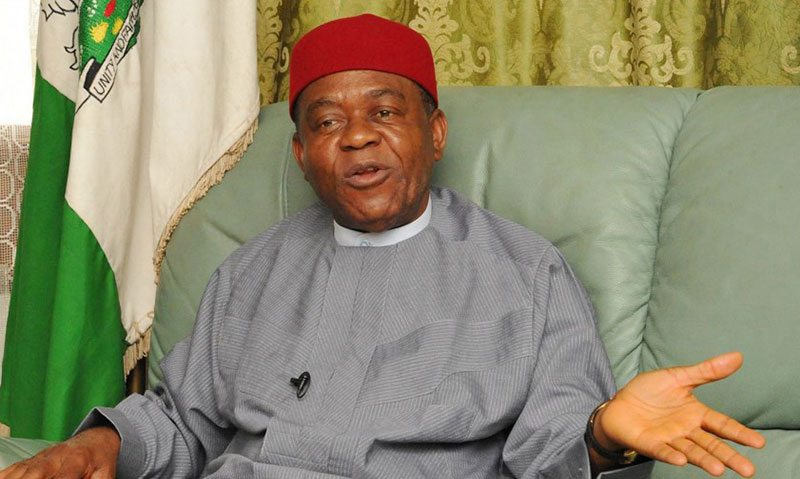The Federal High Court in Abuja has ordered the temporary freezing and forfeiture of more than N228.4 million associated with a former governor of Abia State, Theodore Orji.
After the Economic and Financial Crimes Commission (EFCC) filed an ex parte application to that effect, Justice Emeka Nwite issued the interim forfeiture order on Wednesday.
Fadila Yusuf, the EFCC’s attorney, told the judge that the forfeiture was essential to the agency’s probe into the former governor’s alleged money laundering.
Following the issuance of the forfeiture order, the judge directed the EFCC to notify interested parties by publishing the order in the media.
A former governor of Abia State for two terms, Orji represented the Abia Central Senatorial District as a senator before stepping away from politics.
On December 30, 2024, the EFCC filed a motion ex parte with the filing number FHC/ABJ/CS/03/V/2025, requesting “an order granting an interim freezing and forfeiture of the sum of N228,497,773.12 domiciled with Keystone Bank set out in the schedule attached to the Federal Government of Nigeria.”
The money was discovered in Effdee Nigeria Ltd.’s custody and is thought to represent the profits of illegal activity, according to the EFCC.
Orji, his administration officers, and his family members were accused by the EFCC of conspiring with Effdee Nigeria Ltd. to defraud the Abia State Government through “conspiracy, abuse of office, money laundering, and diversion of public funds.”

Tahir Ahmed, an EFCC litigation officer, claimed in an affidavit submitted in support of the ex parte motion that the agency had acquired information between 2016 and 2017 that implicated Orji, his accomplices, and family members.
He claims that money from the Abia State Government was purportedly laundered through the sewage and waste disposal company Effdee Nigeria Ltd.
Ahmed said that with the assistance of bank authorities, the firm was utilised to transfer funds from government accounts.
He further mentioned that Effdee Nigeria Ltd. and Erondu Uchenna Erondu, a special adviser in Orji’s government, were connected by a bank divisional head in Umuahia.
According to him, “the money was then transferred to the accounts of particular clients, taken out as cash, and given back to the special adviser in government house.”
Once the temporary forfeiture order was issued, Justice Nwite gave anyone interested in the money 14 days to come to him and explain why the money shouldn’t be given to the Nigerian government permanently.
He postponed till February 3 to get a compliance report.


